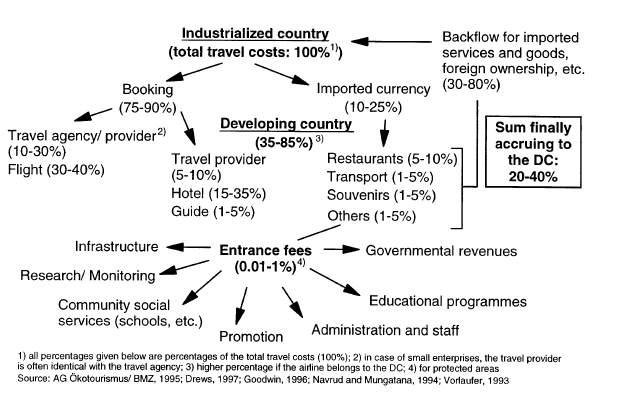There are several stakeholders that are consistently affected and impacted by the economics of ecosystem. These parties are primarily the ecotourism company, the tourists, and the local community. The economic dilemma surrounding ecotourism is to what extent the reserve area can be altered to accommodate tourists without substantially degrading the habitat (Muller 2000). There is always a fine balance between profit and conservation, each which cannot survive without the other. There are numerous economic benefits of ecotourism, such as the economic revenues received by the individuals and government agencies providing tourism services, employment of the individuals involved in developing and maintaining the reserve, and a portion of the revenues is often received by the surrounding community (Muller 2000). As seen in Figure 4, the economic gain from ecotourism is usually distributed among the several stakeholders, and can have far reaching positive economic effects.
Ecotourism also provides many job opportunities, ranging from tour operators, transportation services, hotel and lodging operators, food and entertainment providers, tax revenues and entrance fees, many of which also provide stability and income for the local community (Muller 2000). These economic gains are why companies and countries often choose to invest in ecotourism.

